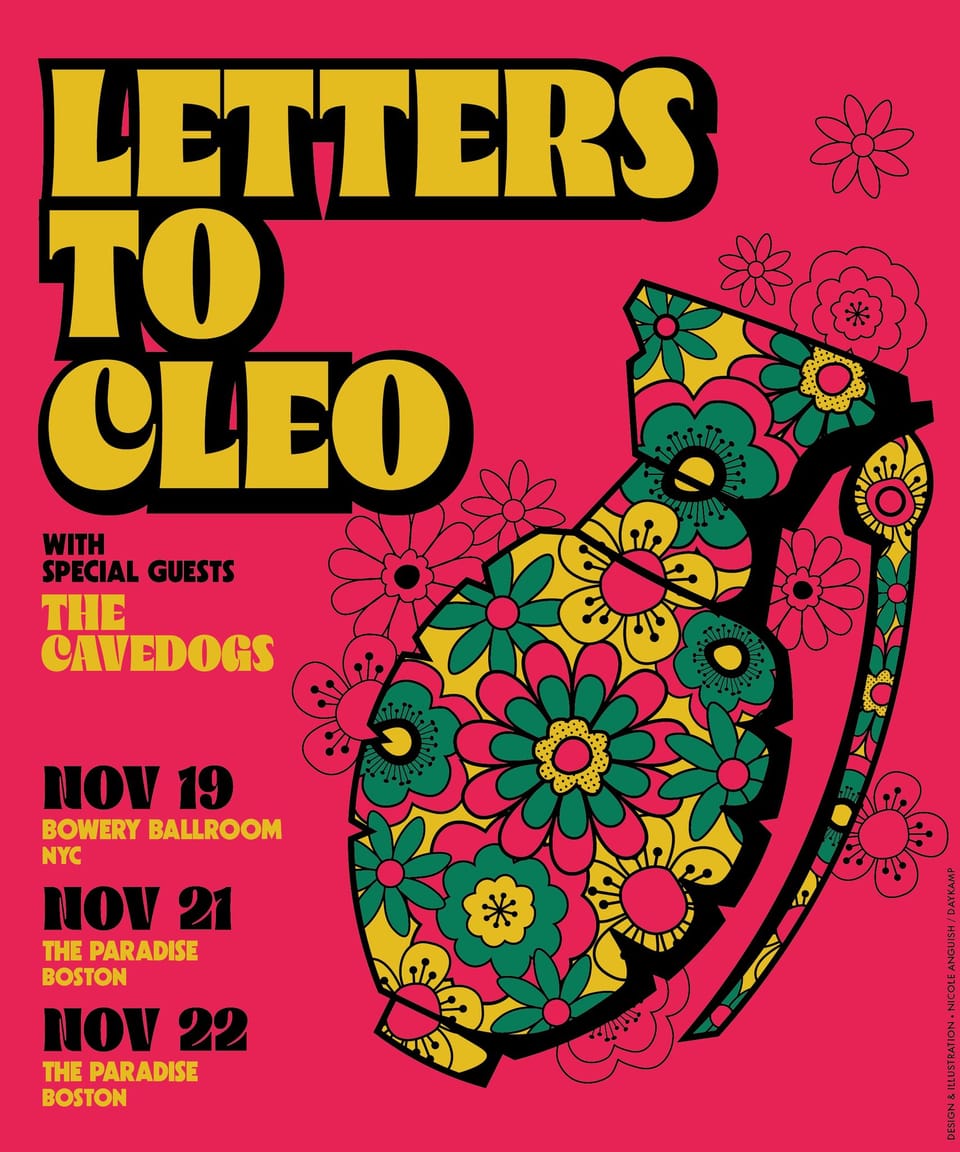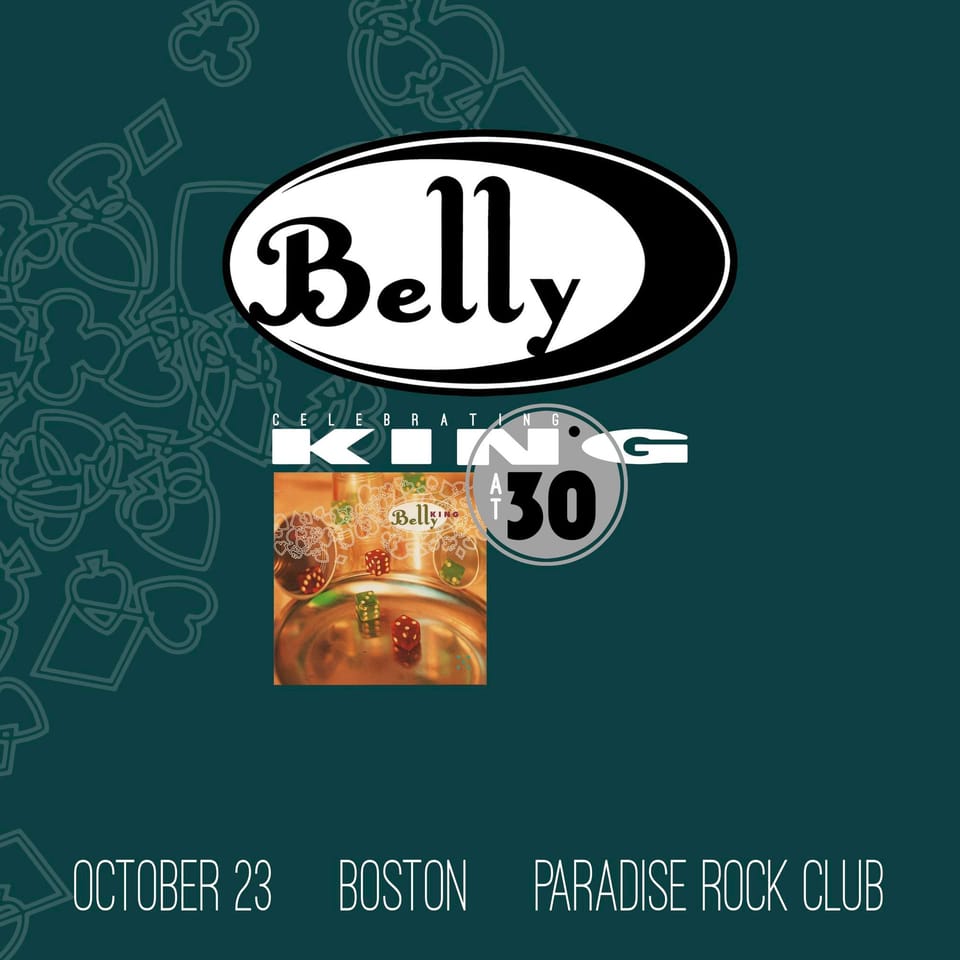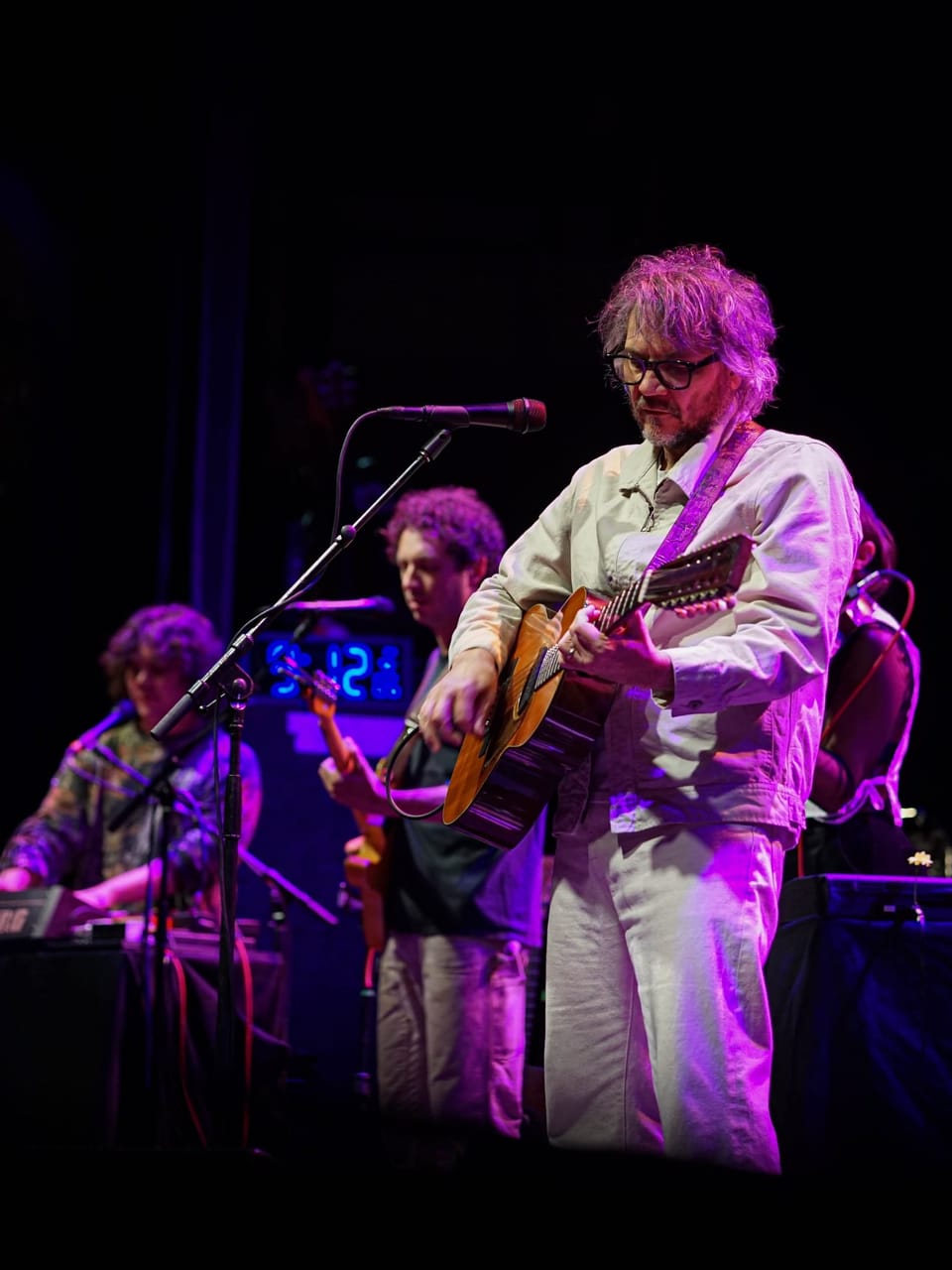Scorching heat, followed by howling winds, ominous thunder and torrential rains. Admittedly, not the best conditions for an outdoor concert. It took dynamic performers like KT Tunstall and Roger Daltrey to drown out mother nature’s cacophonous medley with their own songcraft and musical expression.
Last Thursday, legendary Who co-founder and vocalist Roger Daltrey rolled into the Leader Bank Pavilion to showcase a half century of rock history. Joining Daltrey on the tour was multi-talented Scottish singer-songwriter KT Tunstall. Tunstall’s 2004 debut LP, Eye to the Telescope spawned a string of hits that established her as an eminent songwriting talent for the twenty-first century. In the following years, she has continued to release inventive, thoughtful albums which showcase her musical versatility and heartfelt songwriting in equal measure.
When Tunstall opened the show at 7:30, near record high temperatures still blanketed the pavilion. She introduced herself to the crowd, playfully stating that she’d be “the soundtrack to grabbing your beer and finding your seats”. Her good-natured, witty humor elicited laughter from the audience, and for many of us, she needed no introduction. From the opening strums of her poignant ballad “Other Side of the World”, the crowd listened enthusiastically to a masterclass in sharing songs as living entities.
For stateside gigs, Tunstall often performs solo, using her loop pedal (lovingly christened the “wee bastard” on her 2006 Acoustic Extravaganza album) to record her own rhythms and backing vocals live, in real time. Her breakout hit “Black Horse and the Cherry Tree” showcased her wizardry, layering a steady beat under driving guitar chords and infectious melody, segueinginto Eurhythmics’ hit “Sweet Dreams (Are Made of This)”. 2022’s “Dear Shadow” flowed into a few bars of Ella Fitzgerald’s “Summertime”, then landed at the chorus of Edie Brickell’s “What I Am”. Tunstall’s performance exemplified her impeccable balance of emotiveness, technical skill and musical intuition.
Midway through her set, Tunstall mentioned a conversation with Daltrey in which she inquired about Who songs he would not be performing during his set. As a special treat for 5,000 Who fanatics, she conjured up a thrilling rendition of “The Acid Queen”, from the classic 1969 rock opera Tommy. One would be amazed to learn that this was only her second performance of the track as she sang passionately in character, executing the chord changes which could only be written by Pete Townshend. Her version recalled Townshend’s acoustic demo heard on archival reissues of the album. Listeners felt a kinship with Tunstall as she personified the influence of the Who on countless music lovers of every generation.
To close her set, Tunstall donned a sleek, red electric guitar for an amped up version of her signature hit “Suddenly I See”. She composed this track as a reflection on the desire to express her creativity after hearing Patty Smith’s 1975 debut, Horses, and marveling at its iconic black and white cover. A relatable sentiment for so many listeners who have been struck by a bolt of inspiration. Especially for a reviewer, who spent many nights pouring over Eye to the Telescope and Tommy.
By the time Roger Daltrey and his band took the stage at 8:40, the stormy weather had arrived in full force. Barriers tumbled down and curtains flailed in the air as stagehands rushed to keep fixtures in place. The storm cooled off the humid air as one of rock’s premier vocalists opened his set with Pete Townshend’s 1980 solo hit “Let my Love Open the Door”. After welcoming the crowd, Daltrey explained that “Pete is still deciding whether or not to tour with The Who again, but I don’t want to stop singing!” Much of the show presented a more intimate take on the explosive arena rattling rock the Who had perfected for over six decades.
The scaled back production and loose feel did not translate to a loss of energy or excitement. On the contrary, the eighty-year-old Daltrey sang with the power of a man half his age, invigorated by new arrangements and a varied setlist. The crowd echoed his enthusiasm for Who classics such as “Who are You”, “The Kids are Alright” and “Another Tricky Day” a rarely played cut from 1981’s Face Dances, the band’s first album after the passing of drummer Keith Moon. When the band broke into “Squeeze Box”, the sole hit from the criminally underrated LP The Who by Numbers, Daltrey cajoled the audience to sing along with the final chorus and they complied dutifully, undeterred by the rain.
Like Tunstall, Daltrey’s sense of humor was on display between songs. He answered audience submitted questions with a mixture of wit and warmth one might expect from a wise-cracking uncle at a summer picnic. One card read “Is I Can See for Miles about someone with really good eyesight?” to which Daltrey replied “It’s certainly not about me in that case.” When asked “What color are your underwear?” he retorted “What makes you think I’m wearing any?”
Daltrey was accompanied by Simon Townshend (Pete’s brother on guitar/vocals), Billy Nichols (mandolin), Jody Linscott (percussion), Doug Boyle (guitar), John Hogg (bass/backing vocals), Katie Jacoby (violin/backing vocals), Steve Weston (harmonica), Geraint Watkins (keyboards) and Scott Devours (drums). The lack of synthesizers, omnipresent in The Who’s stadium shows, allowed the band to show off their chops and emphasize the organic feel of the performance. Jacoby’s violin put a refreshing spin on live powerhouses “Won’t Get Fooled Again” and “Baba O’Riley”. Daltrey described the toll that the former song took on his voice, particularly his iconic scream at the instrumental climax. He went on to thank Dr. Steven Zeitel of Mass General Hospital, who he credited with saving his voice in 2009 when he underwent surgery to remove pre-cancerous dysplasia. Daltrey sang for nearly two hours straight only stopping for a short break when Simon Townshend took lead vocal duties on “Going Mobile”, a song never performed live by the Who.
A great benefit of a solo tour for an artist of Daltrey’s stature is the flexibility to play an adventurous setlist. Listeners were pleasantly surprised to hear Who hits augmented by solo tunes and choice covers throughout the evening. Solo gems “After the Fire” and “Days of Light” went over well with an audience excited to venture beyond classic rock radio staples. Daltrey recalled his acting career with “Waiting for a Friend” from the soundtrack to the 1980 film McVicar. Early in the set, Daltrey offered up a version of Taj Mahal’s “Freedom Ride” from a 1998 Americana compilation titled Largo which he lauded as one of his favorite albums. After sharing memories of hearing John Fogerty sing with Creedence Clearwater Revival at Woodstock, Daltrey shared his versions of “Born on the Bayou” and appropriately, “Have You Ever Seen the Rain?”
The last song of the evening was Mose Allison’s “Young Man Blues”, which Daltrey sung often in the halcyon days of the Who. The audience was transported back through the decades as the band turned up the volume and their frontman swung his mike cable around like a chopper blade. That move, exhibited at the Marquee Club in the mid-1960s, Leeds University in 1970 and at hundreds of stadiums and arenas around the world in the decades since, symbolized the cathartic chaos synonymous with The Who’s live performances. The years have been kind to the band’s two remaining founders.



